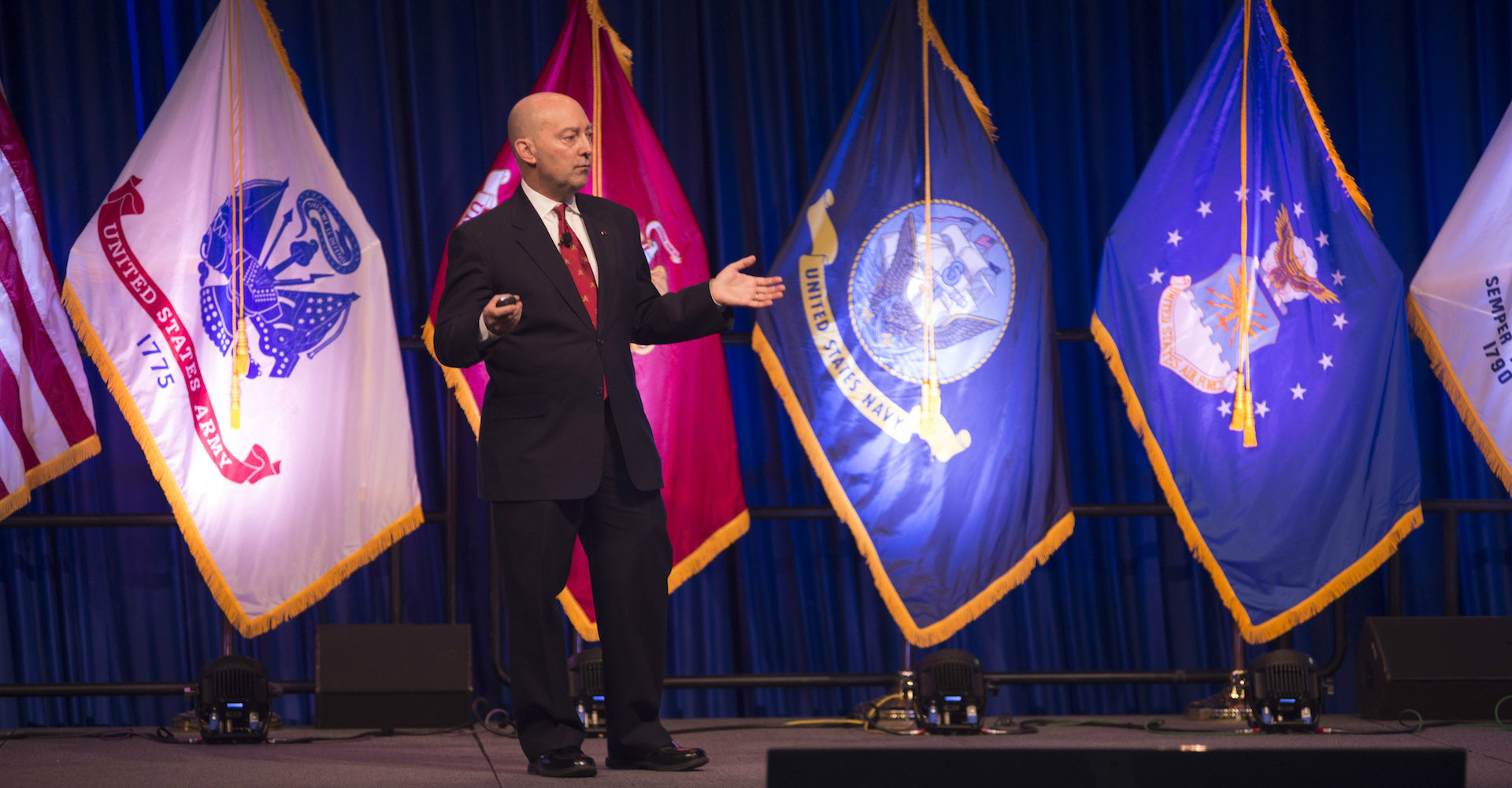‘The Federalist Papers’ vs. ‘Lord of the Flies’
New college grads face the choice of strengthening America’s commitment to order or hastening its descent into chaos, says U.S. Navy Adm. James Stavridis.

Metropolitan State University of Denver’s new graduates have a choice to make, but it doesn’t involve job offers or whether to pursue a master’s degree.
Adm. James Stavridis (Ret.) frames the choice they face as “The Federalist Papers” vs. “Lord of the Flies.” Will this graduating class support the positive benefits of society or peel off to this more chaotic world?

The retired U.S. Navy four-star admiral, former dean at Tufts University and acclaimed author will offer up the competing worldviews Friday as keynote speaker at MSU Denver’s Commencement ceremony for the College of Letters, Arts and Sciences and the School of Education.
During his 37 years in the Navy, Florida-born Stavridis served in commands of increasing responsibility, from that of a single destroyer to a carrier strike group in the Persian Gulf during wartime to the U.S. Southern Command made up of personnel from all the U.S. military services, which was responsible for Central America, South America and parts of the Caribbean. He retired in 2013 after four years in Brussels, serving as Supreme Allied Commander of the North Atlantic Treaty Organization, overseeing military operations that included NATO’s missions in Afghanistan and Syria.
Stavridis on Friday will speak to MSU Denver’s new grads about equality, the rule of law and separation of powers. They are themes privileged in “The Federalist Papers,” in which authors Alexander Hamilton, James Madison and John Jay made the case for ratification of the U.S. Constitution in a series of essays published in the 1780s.
“While of course tinged by their times, with the typical biases of their times, the authors of the papers held a very idealistic view of the importance of creating a rules-based society,” Stavridis said. “As we watch authoritarian systems” — for example, China and Russia — “deny rights and create systems of tyranny, (the authors’ warnings) ring very true.”
Will “The Federalist Papers’” authors’ vision of “safety and happiness in union” come to pass? Or is today’s society already regressing into something more savage, akin to the lost schoolboys in “Lord of the Flies,” the 1954 novel by Nobel Prize-winning British author William Golding — as Stavridis puts it, “a society coming apart at the edges”?
“If you look back on our society 70 years ago, while we had many evident flaws in our approach to civil rights and gender equality, we did have a stronger sense of order in society. Today’s society, I think, has abandoned some of those ideas of civility, decency, honor and compassion,” he said.
Today, he is an in-demand television news analyst, op-ed contributor and speaker, but Stavridis said he hasn’t always been great at making a point.
After graduating from the U.S. Naval Academy in Annapolis, Maryland, in 1976, Stavridis was “a capable mariner,” he said. “I could launch a missile, but I couldn’t launch an idea to save my life.”
Then the Navy sent him to graduate school, where he would excel; Stavridis would go on to earn a Ph.D. in international relations and a Master of Arts in law and diplomacy from the Fletcher School of Law and Diplomacy at Tufts University in Massachusetts. Soon after retiring from the Navy, he returned to the Fletcher School, where he served as dean from 2013 to 2018.
During his tenure at Tufts, Stavridis embarked on what has become an acclaimed and prolific writing career. His memoir “The Accidental Admiral: A Sailor Takes Command at NATO” debuted in 2014, followed by two books in 2017: “The Leader’s Bookshelf,” describing his 50 favorite books about leadership; and “Sea Power: The History and Geopolitics of the World’s Oceans.” His latest tome, “Sailing True North: Ten Admirals and the Voyage of Character,” was published in October.
The theme of order vs. chaos is one he has touched on across his books and myriad media appearances.
Stavridis in an October appearance on MSNBC criticized President Donald Trump’s decision to move U.S. troops out of Syria that month, and the retired admiral continues to contend that removing the troops from the war-torn nation amounts to a “humanitarian disaster.” The move also sent the message that the U.S. is an “unreliable partner” and left behind “a deep sense of betrayal” among the local forces the U.S. had fought alongside, he said.
Recent acrimony among NATO heads of state Trump, French President Emmanuel Macron and Turkish President Recep Tayyip Erdo?an would have made Stavridis’ job at NATO more difficult, he said.
But does NATO still matter? he asked, referring to a question he fields frequently. “Yes, because of its ability to provide collective deterrence” to conventional threats and bolster important counterterrorism and cybersecurity campaigns.
America remains strong, but the choice faced by the country – and MSU Denver’s graduating class – is pressing, Stavridis said.
“Our nation is still holding together and following legal norms,” he said, “but the storm clouds to the contrary are out there.”







